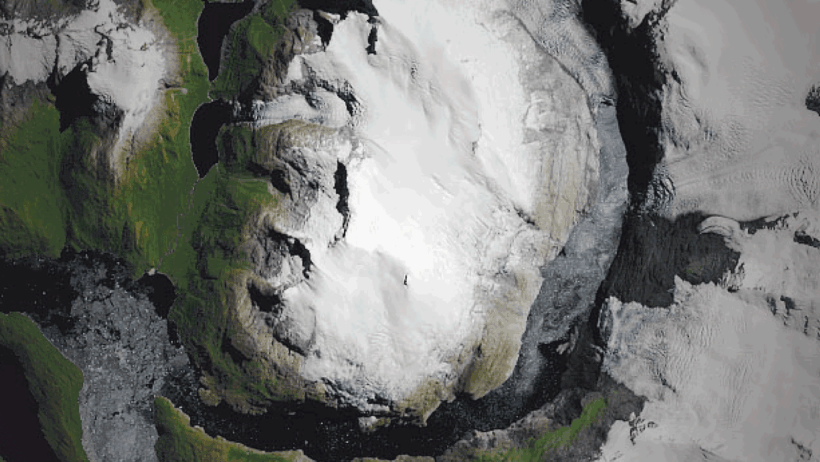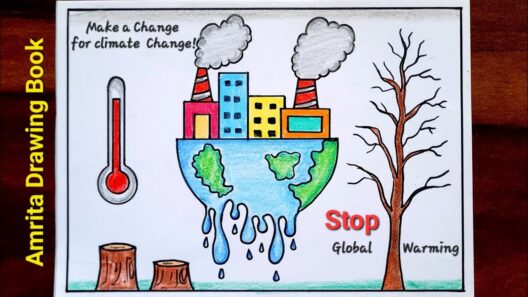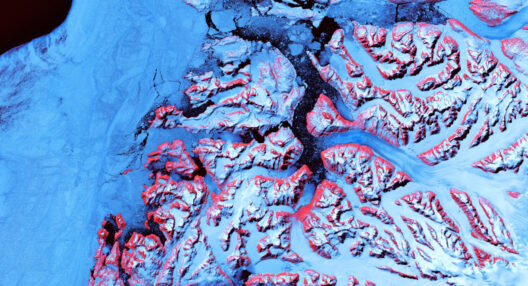In recent years, a fascinating paradox has emerged in public perception: while the scientific consensus on global warming and climate change becomes increasingly irrefutable, a considerable segment of the population appears to exhibit a greater fascination with space exploration than with the urgent realities of environmental degradation. This discernible shift raises critical questions about societal values, belief systems, and the effectiveness of communication strategies surrounding climate issues.
First, understanding the backdrop of this phenomenon necessitates an examination of the widespread public interest in space. Human curiosity about the cosmos is a deeply ingrained trait. From ancient civilizations staring at the night sky to contemporary scientific marvels such as the Hubble Space Telescope and the Mars rover missions, the allure of space seems perennial. This intrigue has intensified as private companies venture into space, promising commercial travel and planetary colonization. The impending reality of space tourism tantalizes individuals with visions of a future beyond Earth, igniting imaginations and aspirations.
Conversely, the climate crisis presents a starkly different narrative—one punctuated by distressing statistics, environmental devastation, and calls for urgent action. Yet, despite the immediacy of these issues, public engagement with climate change often pales in comparison to the enthusiasm surrounding space initiatives. This dichotomy beckons exploration into the psychological and sociocultural factors that govern human belief systems.
One significant aspect influencing public perception is the framing of climate change as a dismal and anxiety-inducing subject. The discourse surrounding environmental degradation is often laden with fearful rhetoric: catastrophic weather events, rising sea levels, and extinction rates of species. Such framing can lead to what psychologists term “doomism,” where the overwhelming nature of the information causes individuals to disengage rather than mobilize for action. This disengagement may foster an inclination to normalize the local realities of environmental decline, invoking a sense of helplessness.
In contrast, the narrative surrounding space exploration is inherently optimistic. It is colored by dreams of innovation, discovery, and the boundless possibilities of human ingenuity. Space missions are often showcased as monumental achievements that propel humanity forward. When juxtaposed with the grim realities of climate change, the positive allure of space exploration can overshadow the growing environmental trepidation. Indeed, in a world saturated with information, the narrative that resonates most compellingly often dictates public interest.
Moreover, the medium through which these subjects are communicated plays a quintessential role. Space is frequently portrayed in a majestic and inspirational light through visually stunning images and thrilling storytelling. Whether depicted by astronauts floating in the vast expanse or spacecraft soaring towards distant planets, the visual language of space exploration captivates and inspires. On the other hand, climate communication often lacks the same visual majesty. While a stark image of melting glaciers or unrelenting wildfires can provoke concern, it may fall short of evoking a sense of empowerment or agency. The challenge thus lies in transforming climate narratives into something equally captivating—something that resonates with a sense of hope and urgency.
Technological advances also contribute to this ongoing schism. As brands and organizations shift their focus toward space exploration, they often seek public support and investment, thereby enhancing visibility and sparking enthusiasm. This results in a competition for attention—one that climate advocates must navigate with ingenuity and dynamism. Collaboration with influential figures in the space sector might serve to bridge this gap, merging the power of both narratives to foster collective action.
However, the interplay between space and climate does not need to be mutually exclusive. In fact, the exploration of other worlds often complements environmental stewardship on Earth. Scientific missions to Mars, for instance, not only aim to uncover the mysteries of the red planet but also yield insights into planetary atmospheres and geological changes that could be applicable to Earth’s climate crisis. The dialogue between these two domains can serve as a springboard for deeper, multifaceted discussions about sustainability, resilience, and the future of our planet.
To navigate this complexity, ardent advocates of climate action must recalibrate their strategies. Integrating narratives of exploration with calls for sustainability could redefine how the public interacts with climate change. For example, emphasizing technological innovations that arise from climate research and their implications for future space missions may foster a more interconnected understanding of our world and beyond.
Educational initiatives also play a pivotal role in shifting perceptions. Introducing curricula that celebrate both space science and climate literacy can inspire younger generations to appreciate the intricacies of both subjects. This dual approach engenders an appreciation for the interconnectedness of life on Earth and the universe at large, ultimately strengthening the message that actions taken today have far-reaching consequences.
In conclusion, while skepticism and intrigue about global warming may seem overshadowed by the excitement of space exploration, this is an opportune juncture for change. Addressing the dissonance between these two realms can lead to a more informed and proactive public engaged with the existential challenges of our time. By merging the narratives of hope inherent in space exploration with the necessary urgency of climate action, advocates can tap into the collective potential to inspire a renaissance of curiosity and commitment to safeguarding our planet—the only home we know, nestled in the cosmos.








